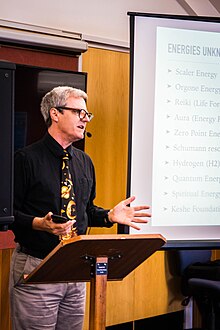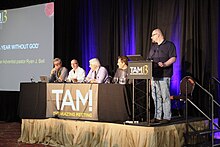
James Randi was a Canadian-American stage magician, author and scientific skeptic who extensively challenged paranormal and pseudoscientific claims. He was the co-founder of the Committee for Skeptical Inquiry (CSI), and founder of the James Randi Educational Foundation (JREF). Randi began his career as a magician under the stage name The Amazing Randi and later chose to devote most of his time to investigating paranormal, occult, and supernatural claims. Randi retired from practicing magic at age 60, and from his foundation at 87.
James Randi Educational Foundation (JREF) is an American grant-making institution founded in 1996 by magician and skeptic James Randi. As a nonprofit organization, the mission of JREF includes educating the public and the media on the dangers of accepting unproven claims, and to support research into paranormal claims in controlled scientific experimental conditions. The organization announced its change to a grant-making foundation in September 2015.

A psychic is a person who claims to use powers rooted in parapsychology such as extrasensory perception (ESP) to identify information hidden from the normal senses, particularly involving telepathy or clairvoyance, or who performs acts that are apparently inexplicable by natural laws, such as psychokinesis or teleportation. Although many people believe in psychic abilities, the scientific consensus is that there is no proof of the existence of such powers, and describes the practice as pseudoscience. The word "psychic" is also used as an adjective to describe such abilities.

The Committee for Skeptical Inquiry (CSI), formerly known as the Committee for the Scientific Investigation of Claims of the Paranormal (CSICOP), is a program within the U.S. non-profit organization Center for Inquiry (CFI), which seeks to "promote scientific inquiry, critical investigation, and the use of reason in examining controversial and extraordinary claims." Paul Kurtz proposed the establishment of CSICOP in 1976 as an independent non-profit organization, to counter what he regarded as an uncritical acceptance of, and support for, paranormal claims by both the media and society in general. Its philosophical position is one of scientific skepticism. CSI's fellows have included notable scientists, Nobel laureates, philosophers, psychologists, educators, and authors. It is headquartered in Amherst, New York.

Scientific skepticism or rational skepticism, sometimes referred to as skeptical inquiry, is a position in which one questions the veracity of claims lacking empirical evidence. In practice, the term most commonly refers to the examination of claims and theories that appear to be beyond mainstream science, rather than the routine discussions and challenges among scientists. Scientific skepticism differs from philosophical skepticism, which questions humans' ability to claim any knowledge about the nature of the world and how they perceive it, and the similar but distinct methodological skepticism, which is a systematic process of being skeptical about the truth of one's beliefs.
A psychic detective is a person who investigates crimes by using purported paranormal psychic abilities. Examples have included postcognition, psychometry, telepathy, dowsing, clairvoyance, and remote viewing. In murder cases, psychic detectives may purport to be in communication with the spirits of the murder victims.
The Skeptics Society is a nonprofit, member-supported organization devoted to promoting scientific skepticism and resisting the spread of pseudoscience, superstition, and irrational beliefs. The Skeptics Society was co-founded by Michael Shermer and Pat Linse as a Los Angeles-area skeptical group to replace the defunct Southern California Skeptics. After the success of its Skeptic magazine, introduced in early 1992, it became a national and then international organization. Their stated mission "is the investigation of science and pseudoscience controversies, and the promotion of critical thinking."
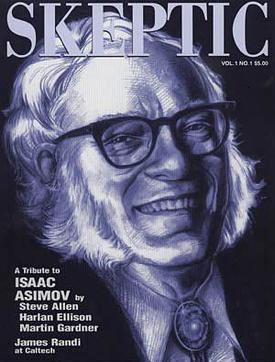
Skeptic, colloquially known as Skeptic magazine, is a quarterly science education and science advocacy magazine published internationally by The Skeptics Society, a nonprofit organization devoted to promoting scientific skepticism and resisting the spread of pseudoscience, superstition, and irrational beliefs. First published in 1992, the magazine had a circulation of over 40,000 subscribers in 2000.
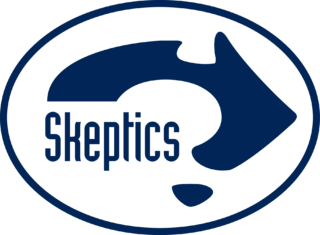
Australian Skeptics is a loose confederation of like-minded organisations across Australia that began in 1980. Australian Skeptics investigate paranormal and pseudoscientific claims using scientific methodologies. This page covers all Australian skeptical groups which are of this mindset. The name "Australian Skeptics" can be confused with one of the more prominent groups, "Australian Skeptics Inc", which is based in Sydney and is one of the central organising groups within Australian Skeptics.

Christopher (Chris) Charles French is a British psychologist who is prominent in the field of anomalistic psychology, with a focus on the psychology of paranormal beliefs and anomalous experiences. In addition to his academic activities, French frequently appears on radio and television to provide a skeptical perspective on paranormal claims.

Ghost hunting is the process of investigating locations that are purportedly haunted by ghosts. Typically, a ghost-hunting team will attempt to collect evidence supporting the existence of paranormal activity. Ghost hunters also refer to themselves as paranormal investigators.
The New England Skeptical Society (NESS) is an American organization dedicated to promoting science and reason. It was founded in January 1996 as the Connecticut Skeptical Society, by Steven Novella, Perry DeAngelis and Bob Novella. The group later joined with the Skeptical Inquirers of New England (SINE) and the New Hampshire Skeptical Resource to form the New England Skeptical Society.

A psychic reading is a specific attempt to discern information through the use of heightened perceptive abilities; or natural extensions of the basic human senses of sight, sound, touch, taste and instinct. These natural extensions are claimed to be clairvoyance (vision), clairsentience (feeling), claircognisance and clairaudience (hearing) and the resulting statements made during such an attempt. The term is commonly associated with paranormal-based consultation given for a fee in such settings as over the phone, in a home, or at psychic fairs. Though psychic readings are controversial and a focus of skeptical inquiry, a popular interest in them persists. Extensive experimentation to replicate psychic results in laboratory conditions have failed to find any precognitive phenomena in humans. A cold reading technique allows psychics to produce seemingly specific information about an individual from social cues and broad statements.

Edinburgh Skeptics is a nonprofit organisation that promotes science, reason and critical thinking in Edinburgh and throughout Scotland. It was founded in 2009. The Society hosts regular social and educational events in Edinburgh and has campaigned against the use of homeopathy and challenged claims of ghost sightings.
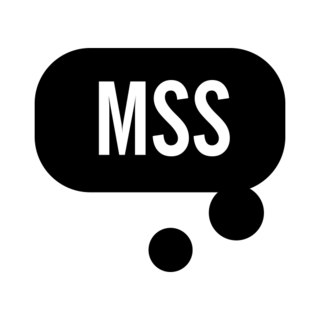
The Merseyside Skeptics Society (MSS) is a nonprofit organisation that promotes scientific scepticism in Merseyside and the United Kingdom. Founded in 2009, the society has campaigned against the use of homeopathy, challenged the claims of psychics, and hosts regular events in Liverpool, podcasts, and an annual conference in Manchester, QED: Question. Explore. Discover.

Sharon A. Hill is an American science writer and speaker known for her research into the interaction between science and the public, focusing on education and media topics. Hill's research has dealt mainly with paranormal, pseudoscience, and strange natural phenomena and began at the University at Buffalo, where she performed her graduate work in this area. Hill attended Pennsylvania State University, earning her Bachelor of Science degree in geosciences and working as a Pennsylvania geologist.

Paranormality: Why we see what isn't there is a 2011 book about the paranormal by psychologist and magician Richard Wiseman. Wiseman argues that paranormal phenomena such as psychics, telepathy, ghosts, out-of-body experiences, prophesy and more do not exist, and explores why people continue to believe, and what that tells us about human behavior and the way the brain functions. Wiseman uses QR codes throughout the book, which link to YouTube videos as examples and as experiments the reader can participate in to further explain the phenomena. Because of a cautious American publishing market, it was only available in America through Kindle. Paranormality was awarded the Center for Inquiry's Robert P. Balles award for 2011.


